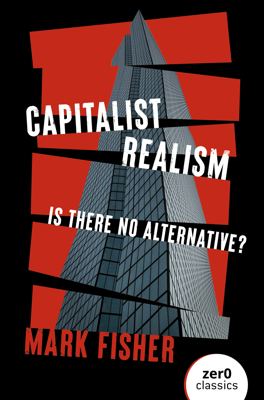‘There’s No Central Exchange’
Capitalist Realism and the Illusion of Governmental Control
The chapter delves into the illusion of a powerful, centralized state, often criticized as the "Nanny State" by neoliberal and neoconservative ideologies. This critique serves a crucial function in capitalist realism, portraying the state as a convenient scapegoat for failures actually caused by private sector inefficiencies and irresponsibilities. This misdirection fosters a sense of an ineffective government that covers up the underlying lack of any central control in global capitalism, contributing to the public's misplaced anger and confusion.
Key Insights on Public Perception and Government Responsibility:
Capitalist realism promotes the notion that while the government appears central, it is, in reality, just cleaning up after private sector failures without any genuine accountability or control. The disillusionment with this setup is palpable as seen in public reactions to disasters like the 2007 UK flooding and the 2008 financial crisis, where blame was disproportionately thrown on the government rather than the private entities at fault.
The Call Center Metaphor for Capitalist Dysfunction
The frustration experienced by consumers in call centers epitomizes the dysfunction of neoliberal capitalist structures. These interactions highlight an absence of effective communication and resolution, reflecting a larger systemic issue where capitalism is more concerned with profit than service or efficiency. The absurdity and helplessness felt in these scenarios are emblematically Kafkaesque, echoing a deeper societal issue of dealing with a faceless, unaccountable system that transcends individual human interactions.
Illustration through Kafkaesque Experiences:
The call center experience is paralleled with Kafka's narratives, portraying a complex, nonsensical system seemingly devoid of rationality and accountability. It represents the modern engagement with capitalist structures—fragmented, impersonal, and frustratingly incoherent, where the consumer's anger finds no legitimate outlet and remains an impotent form of venting against an unresponsive system.
Misplaced Responsibility and Systemic Failure in Capitalism
Focusing on individual responsibility in contexts like recycling and corporate ethics, the text highlights how systemic issues of capitalism are obscured. By shifting responsibility to individuals, structural problems are rendered invisible, allowing capitalist operations to continue unchallenged while maintaining an illusion of ethical participation.
Critical Examination of Ethical Responsibility: - Individuals are bombarded with responsibilities (like recycling) which, while ethically framed, distract from larger systemic issues and corporate accountability. - Ethical imperatives function within the capitalist framework to maintain a status quo, preventing the development of collective solutions or meaningful systemic reforms.
Film Narratives as Reflections of Capitalist Realism
Films like The Parallax View and The Truman Show are discussed as cultural reflections that critique and mirror the complexities and manipulations within capitalist societies. These narratives explore how individual actions are entangled within larger, often obscured corporate and capitalist networks which are inherently resistant to change or accountability.
Key Film Analyses: - The Parallax View underscores the helplessness against vast, opaque corporate conspiracies that manipulate and evade accountability. - The Truman Show contrasts existential choices against a backdrop of controlled and constructed realities, metaphorically questioning the authenticity and freedom of the individual under capitalism.
By highlighting these cinematic examples, the chapter underscores the pervasive manipulation and illusory nature of freedom in capitalist societies, where systemic structures dominate individual agency and ethical responsibility. This cultural representation serves as a critique of capitalist realism's deep entrenchment in both individual consciousness and societal structures.
